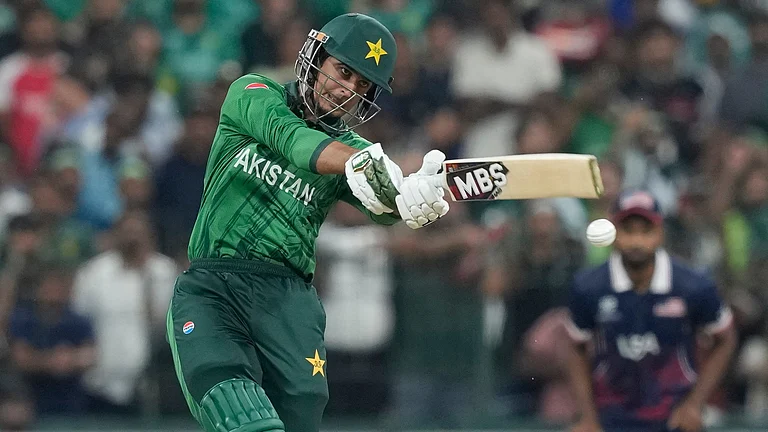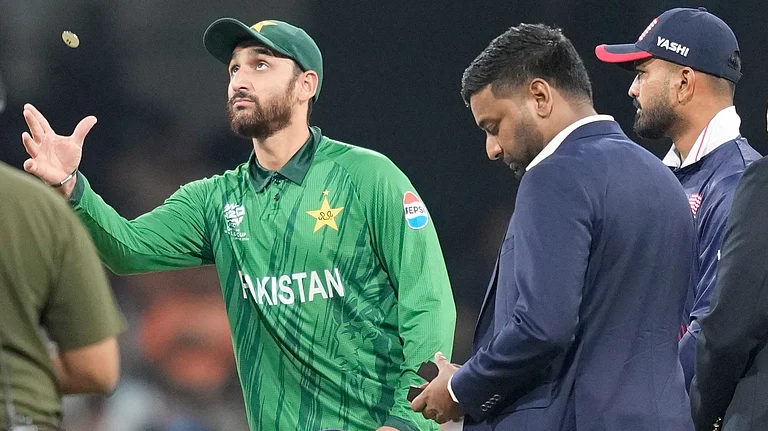ON a July morning, about 400 students of class ten and pre - university swarm amiddle-class home in the Karnataka steel township of Bhadravathi. They are awaitingtheir turn to express their gratitude to a bespectacled man, their GK Sir. Andto pay their mentor an unusual tuition fee: result sheets denoting marks only a whiskeraway from 100 in each subject.
Such a tuition fee is gratifying for B.S. Gopalakrishna Murthy, known tohis students as GK Sir. And this July held special significance for the44-year-old administrative officer of the Life Insurance Corporation (LIC), Bhadravathi.It marked 25 years of a unique teaching experiment that he calls the discussion class orDC. These informal classes have helped over 4,000 rural students overcome acrisis of confidence and lack of access, besides pressure from parents, lecturers andpeers. The alumni of the DC batches have made it to the rank lists of thestate-level pre - university tests, and then to Indian Institutes of Technology (I I Ts),regional engineering colleges (R E Cs) and medical colleges. Some landed jobs in the BigApple.
G Ks belief that every student has the potential to reach the top stems from hisexperience at school. Born to poor Brahmin parents, he went to a government school wherehe couldnt pick up the correct spelling of science even in class ten. Heturned to his teacher, C.N. Srinivasa Murt h y, who taught him for two months prior to hisboard tests without charging a fee. He saw the potential in me and provided properguidance. I got the highest marks in my school, and at that time decided to teach withouta fee. I began with four boys in 74 on the day I joined L I C, says GK.
The classes took off in a garage in his house. Now, every inch of his home, eventhe terrace, is chock-full with students over the weekend. Everybody wantspsychological support and a place where they can go through their syllabus in a relaxedmood. He prods students to improve upon their performance in monthly tests. He citesthe case of Ramachandra, who topped the pre - university tests in 93: this boy got amere six out of 25 in the first mathematics paper, but topped Karnataka in a couple ofmonths. Another ploy to prod students to score 100 on 100 is to set a 90 per cent cut-offin monthly tests that will qualify them for a jaunt. And engineering and medical students,who were taught here, drop by to hand out tips to the current lot on entrance tests toprofessional courses.
G Ks novel course is creating waves in neighbouring towns too. At Shimoga, 20 kmfrom Bhadravathi, GK holds classes in his friends areca stockyard on Sundays.Terikere is another town he visits once a fortnight. He spends Rs 60,000 a year on theclasses, an amount he shrugs off as that expended to get happiness by helpingsomeone.
He isnt against tuitions either. Im only saying that tuitions havelimitations. My son, Vijayraj, whos in class two, takes tuitions because I want theteacher to help him out. Students must go through the syllabus in a relaxed atmosphere.They get nervous because they cant cope, says GK. S.S. Ahmed, a senior managerin the pollution control wing of Visweswaraya Iron and Steel Ltd, agrees. His son, SadiqAhmed, made it to R E C, Warangal, last fall. Its an interactive session whereyoungsters get a chance to speak. It helps them get over nervousness and the fear ofcollege ragging, he says.
Ahmed and other parents have offered to set up a library and a laboratory to help GKconduct practical sessions. Some of my students are waiting for a cue from me. Theywant to contribute a part of their earnings for the DC, he says. But its feesthat students like B.N. Roopa and Vidya, both in their first year pre-university course,bring along which GK cherishes most. Both have vowed to score 100 on 100 in all the foursubjects. If you want to lend a helping hand, call Gopalakrishna Murthy on 08282- 66408,66473 (O), or 66716 (R).




















